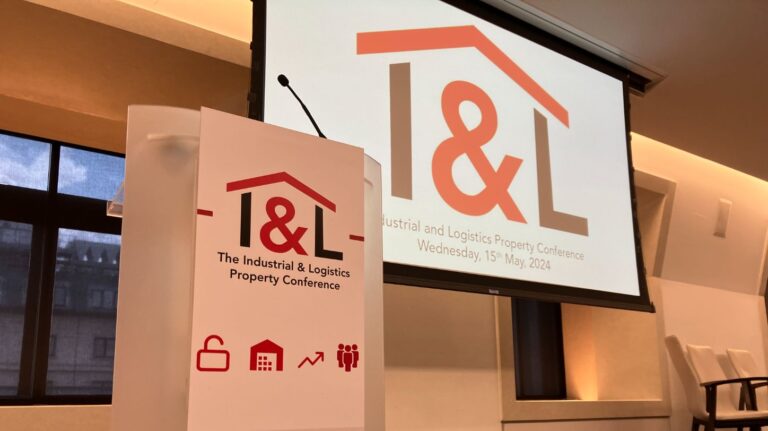Continuing on from this morning [15 May], the second half of Logistics Manager’s Industrial & Logistics Property Conference saw an equally interesting and insightful line-up of expert speakers.
Click here to read the highlights from this morning!
Once again, Logistics Manager would like to thank the sponsors of this event: Visku, iPort UK and Aurora Insights.
After the lunch break, Craig Tellwright, director of risk, and Benjamin Bird, business development and solutions design director – both from Yusen Logistics – gave a presentation entitled ‘Innovating the shared-user warehousing sector’.
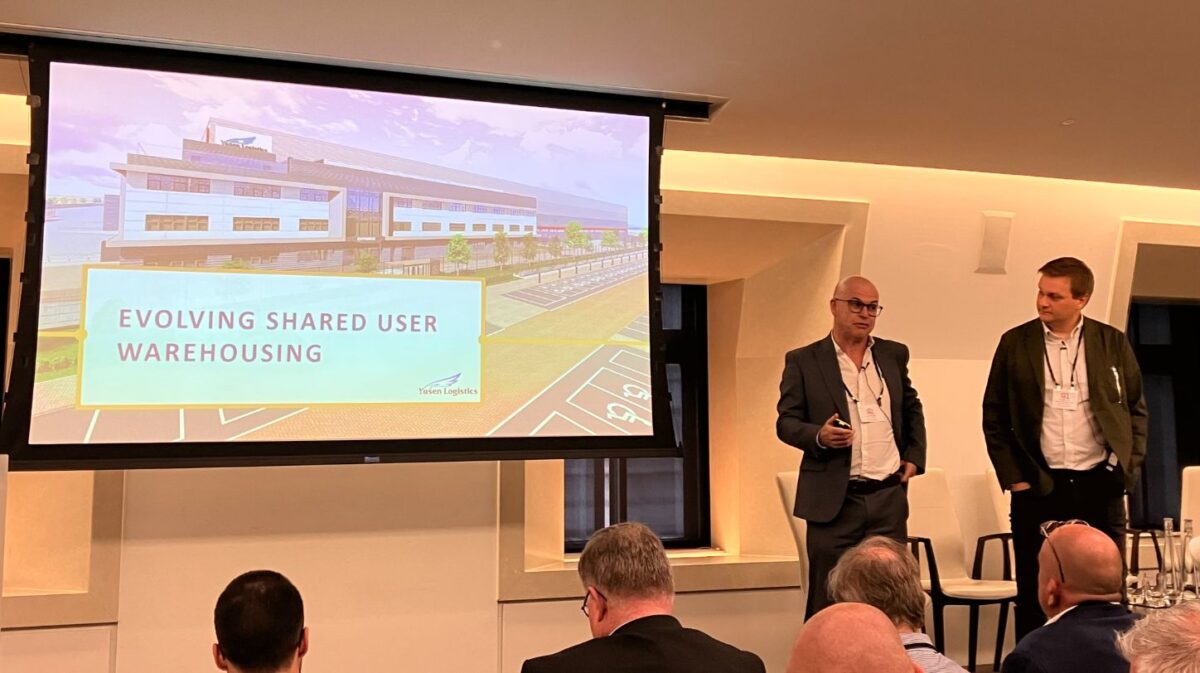
They covered the surge in industrial land prices, as well as other market challenges including sustainability and prohibitive CapEx investments due to macroeconomic factors.
Tellwright and Bird also touched on the impact of labour costs and scarcity – in addition to disruptive global events – on logistics operations.
They spoke about the benefits of using automation within warehouses to drive efficiency improvements, making the most of the space available.
Tellwright outlined the sustainability features of Yusen Logistics’ planned 1.2 million ft² facility at SEGRO Logistics Park Northampton, ranging from solar panels to EV charging, as well as green spaces.
Bird added that Yusen Logistics had explored the idea of retrofitting its existing warehouses to meet increasingly stringent sustainability requirements, but ultimately decided that designing this new, BREEAM ‘Excellent’ certified facility would be a more viable option, presenting a greater opportunity.
Then came a panel discussion entitled ‘How is the approach to urban logistics changing?’. This discussion was moderated by Logistics Manager’s award-winning contributing editor for property and features Johanna Parsons. The panel comprised: Kevin Savage, COO of Delivery Mates; Rich Pleeth, co-founder and CEO of Fin Sustainable Logistics; and Tim Jones, director of marketing, communications and sustainability at DPD.
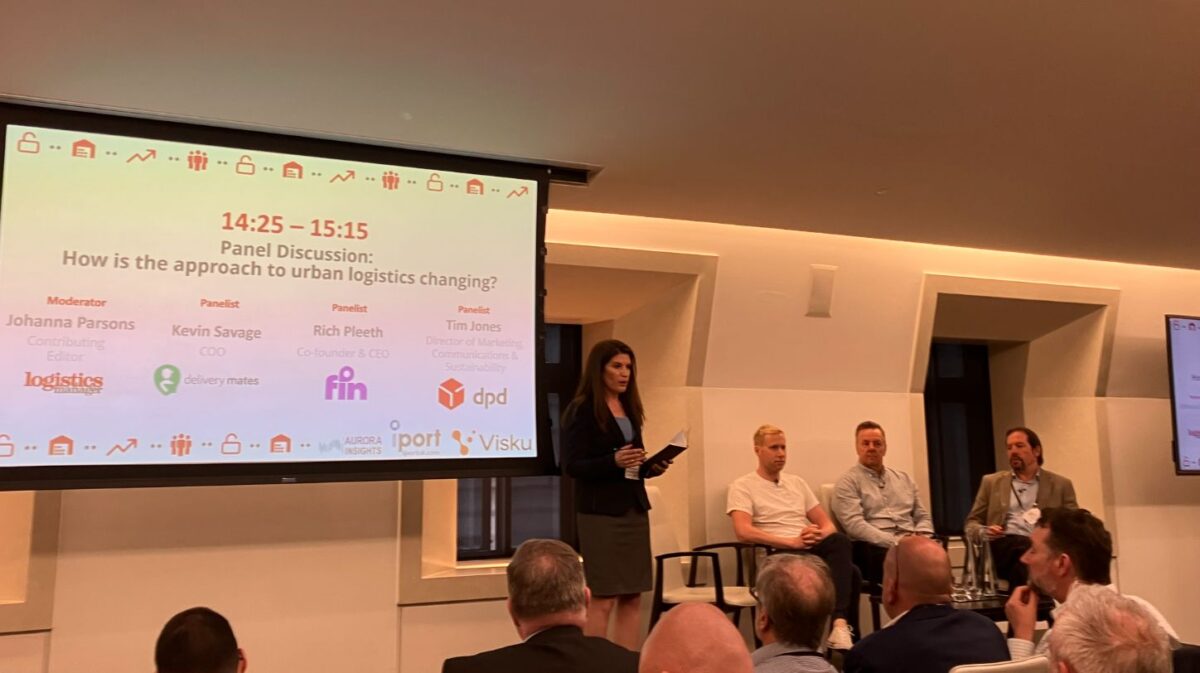
They discussed micro-hubs and non-traditional urban logistics spaces, the benefits of having logistics spaces close to densely populated areas and how properties can support alternative last-mile delivery vehicles like walkers and e-cargo bikes.
Tim Jones identified greenwashing as a major issue within last-mile delivery, noting that DPD will be removing the green colouring from its vans and returning to its original red-and-white livery.
He also criticised those who claim that out-of-home deliveries are more sustainable, noting that this is only the case if the consumer picks up their parcel on foot or on a bicycle, rather than driving to the delivery location, be it a store or a parcel locker. He mentioned mobile parcel locker solutions as a potential alternative to address this issue in the future.
Interestingly, Rich Pleeth of Fin Sustainable Logistics and Kevin Savage of Delivery Mates agreed that they’d both be happy to share space, despite being in direct competition in the market. “I’d be very happy to share space with competitors,” said Pleeth, adding: “Yes, we’re in competition but if we work together we can make the industry bigger as a whole”.
The panel also discussed the opportunity to create space underground, but noted that the inevitable cost of doing so could disincentivise such action.
Furthermore, they covered the challenges of providing power to micro-hubs in order to support last-mile EVs and issues with grid capacity. “Power and charging infrastructure are some of the key blockers [to sustainable last-mile delivery],” said Jones.
Savage described micro-hub solutions using micro-hubs as “much more agile and much more flexible” than traditional last-mile delivery options, while Jones shared his view that scale is an issue prohibiting further expansion of e-cargo bike networks in the UK.
Pleeth argued that switching from vans to e-cargo bikes, even in some capacity, could bring serious benefits to congestion and decarbonisation, while Jones doubted the feasibility of e-cargo bikes in coping with UK e-commerce demand.
Jones went on to share a sentiment that seemed to underpin the discussion: “Only through shared sites and more collaboration are we able to still give consumers what they want, but to do so more sustainably.”
After a short break, Tony Greig, senior manager at Mitie gave a presentation entitled ‘The role the commercial property market plays in the nationwide transition to electric vehicles’.
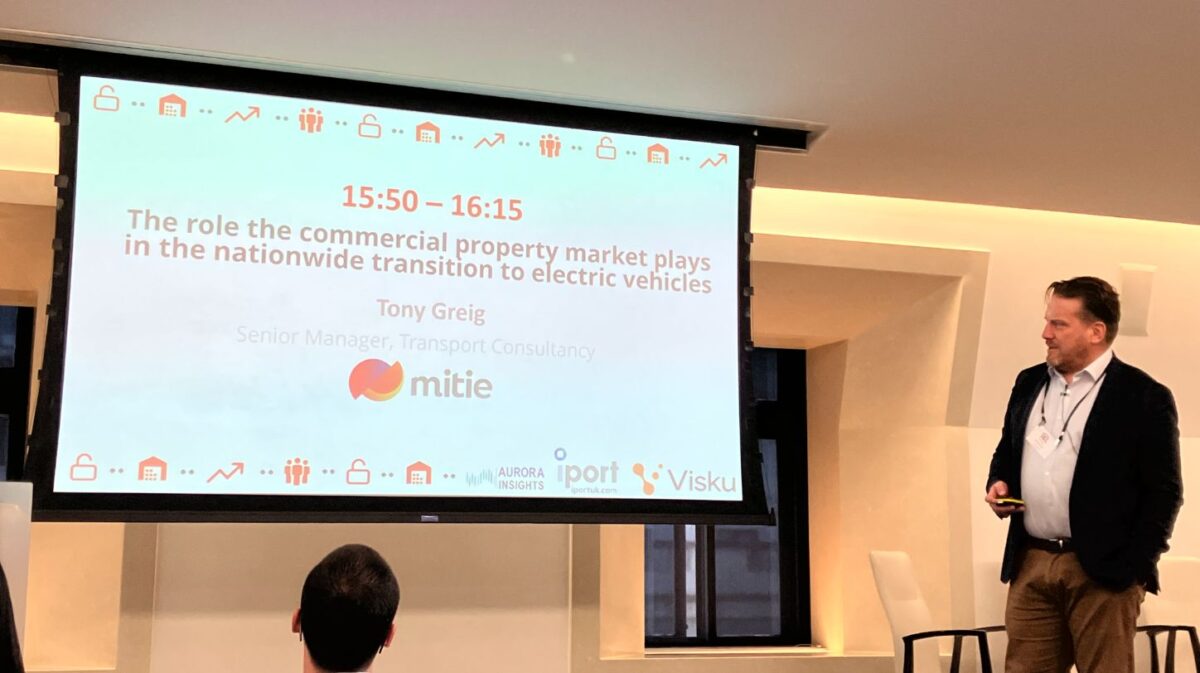
He spoke about the importance of planning for the future, the power of collaboration and factoring in wider decarbonisation plans.
Building on comments in previous sessions regarding EVs, Greig said: “Electric vehicles aren’t just the answer, but they are part of the answer”.
He went on to cover different considerations when it comes to making warehouses more sustainable, including energy, waste and biodiversity.
“If you’re building your infrastructure technology for now, you’re already behind,” Greig commented, alluding to the quick pace at which technology and attitudes can change in today’s logistics environment.
The benefit of this is that a site built to last for longer won’t need to be worked on for longer, which obviously cuts costs. “You only want to dig once,” Greig explained.
He also touched on other ways to make buildings more sustainable including battery storage, degasification of heating and installing solar panels.
The final session of the day was given by Henry Johnston, research assistant at Aurora Insights – one of the event’s sponsors. His presentation had the title ‘Crate expectations: insights into warehousing within the supply chain’ – a session that shares its title with Aurora Insight’s latest report.
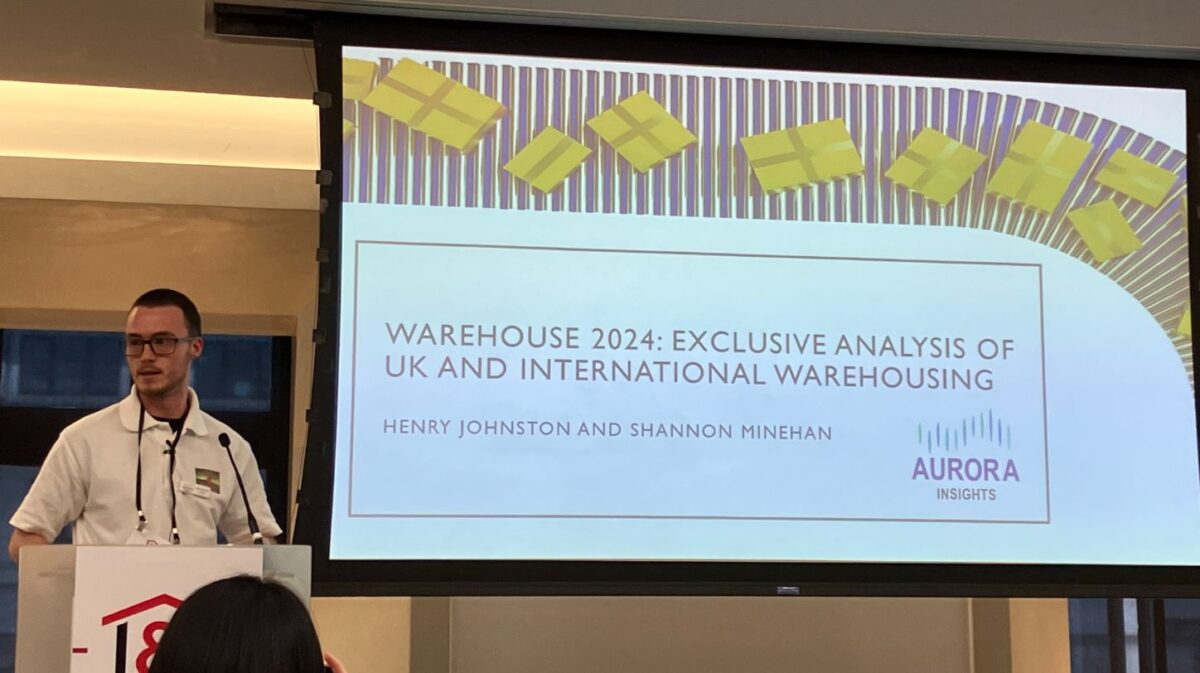
Johnston presented the findings of this report, which used novel data on warehousing within supply chains to map challenges and trends in warehousing, focusing on what solutions and opportunities present themselves in this sector today.
He explained the seemingly causal relationship between staff claiming to be overworked and high employee turnover in the warehousing sector. Other causes include lack of career progression and company culture, Johnston’s research found.
The research also found that poor sustainability is one of the biggest trending challenges today, followed by poor visibility and poor data, Johnston shared.
Upcoming trends that Johnston identified include data analytics, innovation and automation, followed by AI, which has had a sharp rise in popularity in recent years.
To purchase this report or find out more about Aurora Insights, click here.
With that, the 2024 conference drew to a close and Logistics Manager’s editor Emily Uwemedimo thanked the speakers and delegates, reflecting on a day which not only provided valuable insight into this crucial aspect of logistics, but unrivalled networking opportunities for like-minded delegates aiming to leverage their properties to help with their business, operational, environmental, social and governance strategies.


